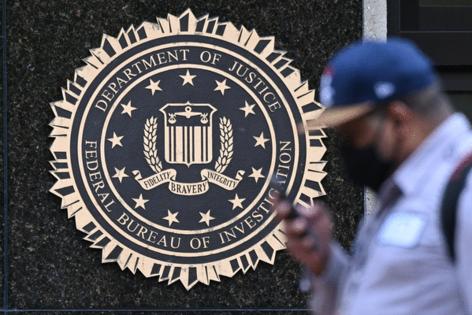Inspector general websites disappear as government shuts down
Published in Political News
WASHINGTON — Some inspector general websites were down across the federal government as of midday Wednesday during the first day of the partial government shutdown, after lawmakers on Capitol Hill could not make a deal on a stopgap funding bill.
For at least a half dozen government watchdog offices, their websites appeared blank Wednesday except for a terse message on home landing screens that read: “Due to a lack of apportionment of funds, this website is currently unavailable.”
Inspector general websites for the Department of Justice, the Environmental Protection Agency, the Department of Veterans Affairs and the Department of Education all featured the same message.
The sites also provided no access to previously available pages, such as those for published reports and other information created by the watchdogs, which are aimed at rooting out waste, fraud and abuse.
At the DOJ, the approach for the IG site differs from the department’s main site, which was left live but with a message: “Democrats have shut down the government. Department of Justice websites are not currently regularly updated.”
The inspector general website for the Department of Transportation still allowed access to its reports but said its operating status was “CLOSED” and that the office was in a furlough status.
In a message on its website, the Department of Labor’s inspector general said the site is not being updated because of the partial government shutdown.
“Updates to the site will start again when the Federal government resumes operations,” the website message read.
President Donald Trump, in the first month of his second term, fired more than a dozen inspectors general across the federal government, but not at the DOJ, and apparently did not provide congressional lawmakers the required notice and reasons.
Such a large-scale firing of internal watchdogs has not happened for decades, and several experts argued that the firings were a threat to the entire system established in the 1970s.
In a 13-page contingency plan, the Justice Department earlier this week previewed how its inspector general office might be affected in a partial government shutdown.
The inspector general himself would not be subject to furlough, and other employees would still be needed to continue their work investigating bribery, fraud and abuse, according to the plan.
But the plan also noted that about 40% of the watchdog’s workforce would not be safe from furlough.
On Wednesday, Senate Judiciary Chairman Charles E. Grassley, a champion of inspector general offices, weighed in on the shutdown’s effect on those offices.
“Just like everything else, government’s supposed to serve the people, and you can’t serve the people when it’s not functioning, whether it’s [an] inspector general or anybody else,” Grassley said.
Earlier this week, Senate Appropriations Chair Susan Collins, R-Maine, and Grassley sent a letter questioning why the Trump administration has apparently failed to apportion funds for the Council of the Inspectors General on Integrity and Efficiency for fiscal 2026 operations.
The unavailability of the inspector general websites is a different approach than some other broader agencies, such as the Department of Agriculture and the Department of Housing and Urban Development, which posted notices that blamed the “Radical Left” for the shutdown.
An Office of Management and Budget memo updated Tuesday states that the “mere benefit of continued access by the public to information about the agency’s activities would not warrant the retention of personnel or the obligation of funds to maintain (or update) the agency’s website” during a funding lapse.
OMB, in response to a question about what happens if the cost of shutting down a website exceeds the cost of maintaining services, said the costs do not affect the determination of which services to continue.
“Nevertheless, agencies should ensure the shutting down of a website or other functionality does not introduce or invite potential threats to the security, confidentiality, or integrity of the agency information resources as described in the preceding questions,” the OMB memo states.
©2025 CQ-Roll Call, Inc., All Rights Reserved. Visit cqrollcall.com. Distributed by Tribune Content Agency, LLC.
























































Comments